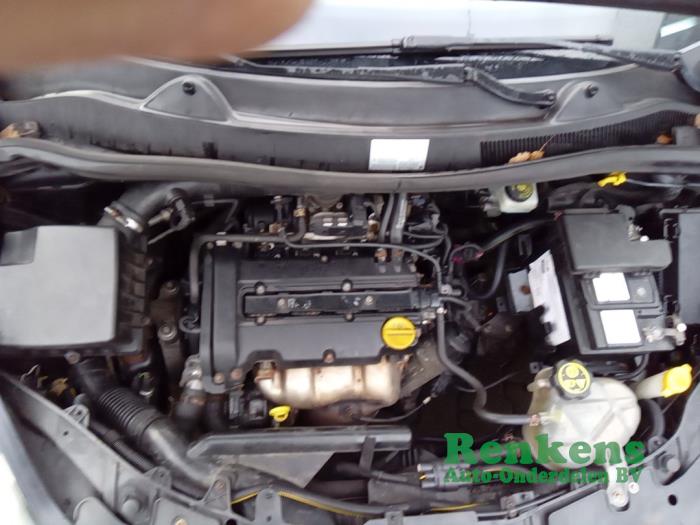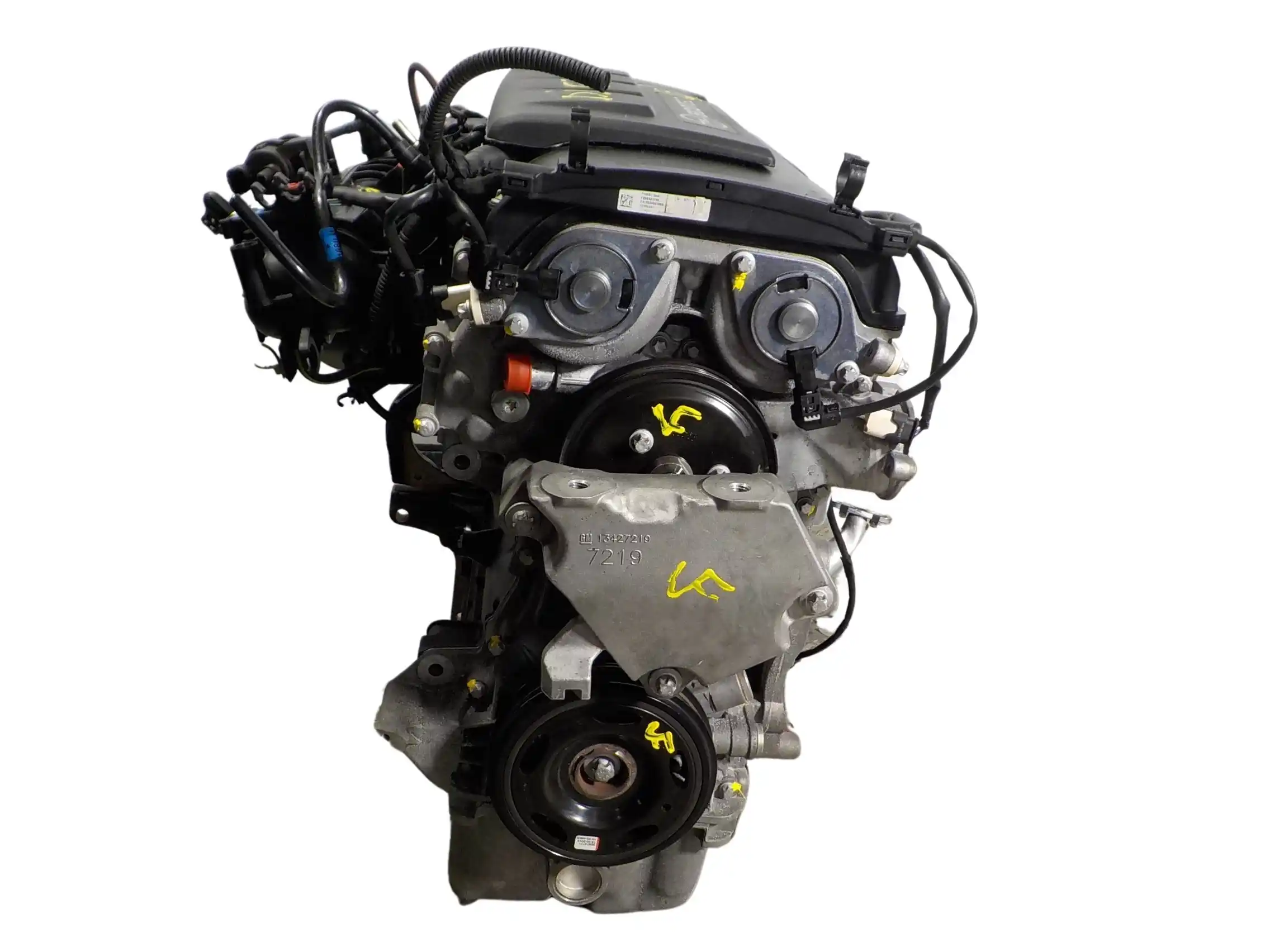Engine Buying Expert Tips on Selecting the Right Engine for Your Particular Needs
Picking the ideal engine for your particular needs entails a complex interaction of aspects that go beyond plain horsepower figures. By diving right into the ins and outs of power versus effectiveness, evaluating gas ratings, and budgeting for lasting expenses, one can truly enhance their engine selection.
Power Vs. Performance: Discovering the Equilibrium
When choosing an engine, it is crucial to strike an equilibrium between power and effectiveness to meet your certain needs successfully. Power refers to the engine's capability to produce energy for propulsion, establishing variables like acceleration, lugging capability, and total performance - Opel Corsa 1.4 Engine Price. On the various other hand, performance associates with just how well the engine utilizes gas to create power, affecting variables such as gas economic situation and ecological kindness
Achieving the ideal equilibrium between power and effectiveness is crucial because an engine that is also effective may take in extreme gas, leading to higher operating expense and unneeded pressure on the setting. Conversely, an engine that prioritizes effectiveness over power might cause slow efficiency, especially sought after circumstances like lugging hefty loads or driving uphill.
To make an informed choice, think about aspects such as your regular driving problems, the desired use of the vehicle, and your personal preferences. By assessing your requirements and top priorities, you can choose an engine that strikes the excellent equilibrium in between power and performance, ensuring optimal performance while reducing ecological influence and operating prices.
Recognizing Engine Dimension and Kind
To better improve the option process of an engine that strikes the ideal balance between power and efficiency, it is vital to look into the intricacies of understanding engine size and kind. Engine dimension describes the overall volume of air and gas that can be pressed with the engine cylinders. It is usually measured in liters or cubic centimeters. Larger engine dimensions normally lead to more power result but can additionally bring about lowered gas performance. On the other hand, smaller sized engine dimensions are usually extra fuel-efficient however may give up some power.
Usual engine types include inline engines, V engines, and rotating engines, each with its unique benefits and drawbacks. Understanding the interplay in between engine dimension and type is important in picking an engine that aligns with your specific requirements and priorities, whether it be power, effectiveness, or a balance of both.

Consider Your Automobile's Needs
If you are looking for an engine for a sturdy vehicle that will be utilized for towing, you will need an effective engine with high torque capabilities. On the various other hand, if you are picking an engine for a compact cars and truck mainly made use of for city commuting, fuel efficiency may be a much more essential factor to think about.
If you often drive in hilly or hilly next areas, a durable engine with great climbing power will be essential. By straightening the engine specs with your car's needs, you can make certain that your automobile operates successfully and satisfies your performance assumptions.
Examining Fuel Performance Scores
Evaluating gas performance ratings is a critical element of selecting the appropriate engine for your car, guaranteeing price savings and ecological sustainability. Fuel effectiveness rankings, normally measured in miles per gallon (MPG) for fuel engines or kilowatt-hours per 100 miles (kWh/100 miles) for electric engines, show how far a vehicle can take a trip on a specific quantity of gas or electrical energy. Higher MPG or lower kWh/100 miles worths represent more effective engines, converting to decreased gas costs and lower carbon exhausts.
When reviewing gas effectiveness ratings, consider your driving needs and routines. If you commute cross countries daily, an extremely fuel-efficient engine article can cause substantial savings gradually. In addition, compare different engine alternatives within the same car course to recognize one of the most economical option. Aspects such as engine dimension, weight, the rules of aerodynamics, and hybrid or electric abilities can all affect gas performance.
Budgeting for Long-Term Prices
Strategically intending for lasting costs is crucial when picking an engine, guaranteeing economic sustainability over the lorry's life-span. While the initial purchase rate of an engine is a significant variable, it is critical to consider the long-lasting expenses connected with maintenance, repair services, and gas consumption. Selecting an extra fuel-efficient engine might have a higher in advance expense but can lead to substantial cost savings gradually. Regular upkeep, such as oil modifications, filter replacements, and tune-ups, is important to keep the engine running efficiently and efficiently, minimizing the threat of expensive repair services down the line.
Furthermore, researching the schedule and cost of replacement components for the picked engine is crucial in spending plan planning. Engines with conveniently available and affordable parts can dramatically influence long-lasting upkeep expenses. Additionally, considering the engine's sturdiness and anticipated life-span can aid stay clear of unexpected replacement expenses in the future. By very carefully budgeting for these long-term expenditures and factoring them right into the decision-making procedure, individuals can pick an engine that not only meets their instant requirements but likewise stays cost-effective throughout its life-span.
Verdict
To conclude, choosing the best engine for your details needs calls for balancing power and performance, understanding engine size and type, considering your vehicle's needs, assessing gas effectiveness ratings, and budgeting for lasting costs. By meticulously taking into consideration these elements, you can make certain that you pick an engine that meets your demands and gives ideal performance for your car.
To further Check Out Your URL improve the selection procedure of an engine that strikes the optimum equilibrium between power and efficiency, it is important to dive right into the complexities of comprehending engine dimension and kind. Engine size refers to the total quantity of air and fuel that can be pressed with the engine cylinders. Common engine kinds include inline engines, V engines, and rotary engines, each with its special advantages and disadvantages. Comprehending the interaction between engine dimension and type is essential in choosing an engine that lines up with your particular needs and top priorities, whether it be power, effectiveness, or an equilibrium of both.
